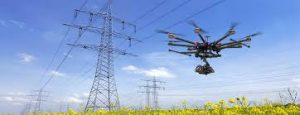
The Federal Aviation Administration came under fire this week for being too aggressive in considering the impact of commercial drones. Drone operators in Oklahoma and other states where experiments have been approved might be applauding the report from the National Academies of Science, Engineering and Medicine.
The group said safety regulators are actually hindering the spread of commercial drones and they need to balance the overall benefits instead of treating drones like airliners.
It was a strongly worded report that accused the FAA of tilting against plans for commercial drone operations without considering the potential to reduce other risks and perhaps save lives. The report cited how drones are used to inspect cell-phone towers and it reduces the risk of workers climbing up the towers.
The report was the result of a study on the FAA’s work on integrating drones into the nation’s airspace. Congress had requested the study last year.
At the FAA, a spokesman responded by saying the science board’s recommendations actually match the efforts of the FAA “and we see them as an endorsement of our efforts and encouragement to accelerate our efforts.”
But the drone industry responded otherwise. The President of the Association for Unmanned Vehicle Systems International hailed the report and called for a flexible approach to regulation. The Association thinks operators should be allowed to fly drones beyond their line of sight, at higher altitudes and weights more than 55 pounds.
The report came from largely a 14-member committee make up of representatives from universities, research groups and the aerospace industry. The science board accused the FAA of making “overly conservative risk assessments” about drones and wrongly applying the same near-zero tolerance for risk that is used with other aircraft.
“In many cases, the focus has been on ‘What might go wrong?’ instead of a holistic risk picture” that considers overall risk and benefit, the advisers wrote.
Instead, the advisers recommended, the FAA should meet requests for drone operations approvals by saying, “How can we approve this?”
The board was critical of FAA culture even while acknowledging that the FAA’s approach has helped make manned aviation safer.
“The committee concluded that ‘fear of making a mistake’ drives a risk culture at the FAA that is too often overly conservative, particularly with regard to (drone) technologies, which do not pose a direct threat to human life in the same way as technologies used in manned aircraft,” the board experts wrote.
“We do not ground airplanes because birds fly in the airspace, although we know birds can and do bring down aircraft,” they wrote.
___





